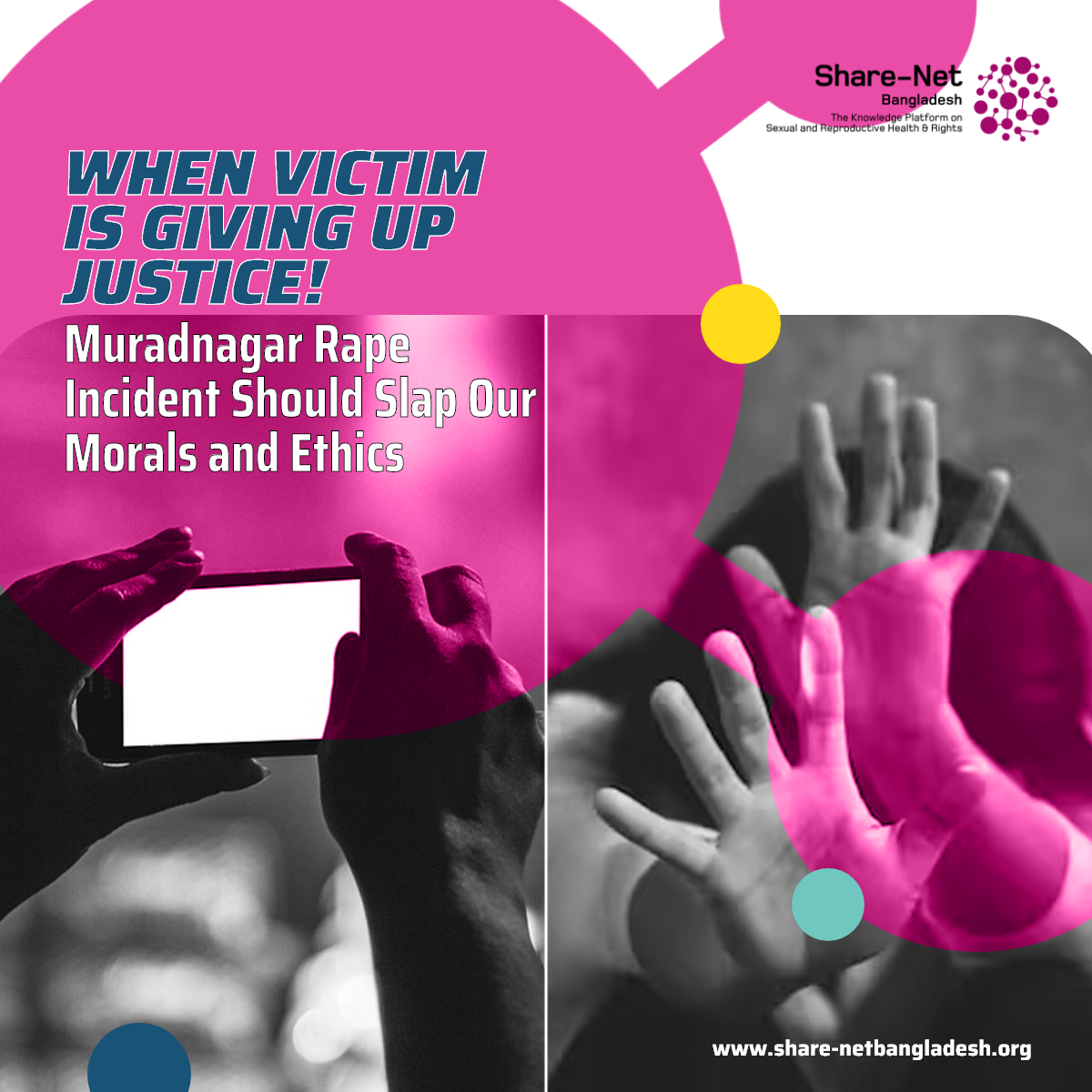When Victim Is Giving Up Justice: Muradnagar Rape Incident Should Slap Our Morals and Ethics
On the night of June 26 in Muradnagar, Cumilla, a 25-year-old Hindu woman was brutally raped at knifepoint in her father’s home by Fazor Ali—a local BNP leader—while her husband was in Dubai. Villagers intervened, apprehended and beat the suspect, only for onlookers to snap video and circulate it online. Police swiftly arrested Fazor Ali on June 29 in Dhaka, along with four others implicated in filming and sharing the footage.
Police Demand Remand; Victim Seeks Withdrawal
Cumilla Court Inspector Sadequr Rahman has petitioned for a seven‑day remand to question the accused thoroughly. Meanwhile, the victim—under pressure from her husband and local residents—has expressed willingness to withdraw her case “to preserve peace”.
Channel 24 quoted her husband: “The damage to our honour is already done. If we proceed with the case… she will withdraw the case of her own free will.”
This stark tension between rightful pursuit of justice under women and children’s protection laws and the victim’s pressure to end legal proceedings underscores a critical SRHR issue: when survivors sacrifice their rights “for the sake of peace,” societal silence wins.
Social Injustice & Moral Decline
Law Adviser Asif Nazrul on Sunday said the government will ensure trial for the recent Comilla Muradnagar rape with the utmost seriousness. He said, “Like ordinary citizens, we are also deeply shocked by the rape. Our home ministry has taken immediate action. The prime accused, along with those involved in spreading photos of the incident, a highly irresponsible and criminal act, have all been arrested.”
But the recent attacks on vulnerable women—especially minorities—reflect systemic failure. A surge in sexual violence in Bangladesh has been reported: January 2025 saw over 1,000 cases of harassment and violence, with 63% involving children. Yet only 20–25% of harassment or rape cases result in legal action. Nearly 150,000 cases under the Women and Children Repression Prevention Act remain pending; over 35,000 of these exceed five years—a culture of impunity that erodes reproductive and sexual rights.
Policies and Gaps
High Court judges have responded: on June 29, they mandated the Bangladesh Telecommunication Regulatory Commission to purge viral footage and ordered authorities to ensure the victim’s safety. These interventions show judicial recognition of SRHR violations extending beyond physical assault to digital and reputational harm.
Yet gaps remain: Bangladesh operates with just one DNA testing lab, delaying justice for rape survivors. Experts demand upgraded forensic infrastructure, better police training, fast‑track tribunals, and survivor-centred protection—innovations essential for real SRHR progress.
Take action beyond communal or political fallacy
The “Murdanagar Rape” case cuts deeper than one horrific crime—it exemplifies how survivors are silenced to maintain social harmony, while state responses lag. The victim’s plea to preserve peace may be seen as safeguarding her family’s honour, but it also shines a light on how societal norms pressure women into silence, undermining their sexual rights and bodily autonomy.
High-profile cases like the Magura child rape in March 2025 and cumulative SRHR deficit signal urgent need for structural change. Civil society must push for policies that ensure forensic access, reduce case backlogs, and protect survivors — so future victims need not choose between justice and peace.

